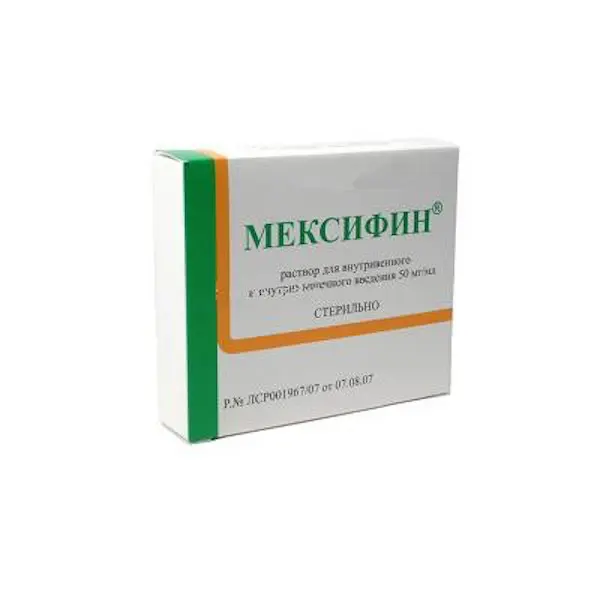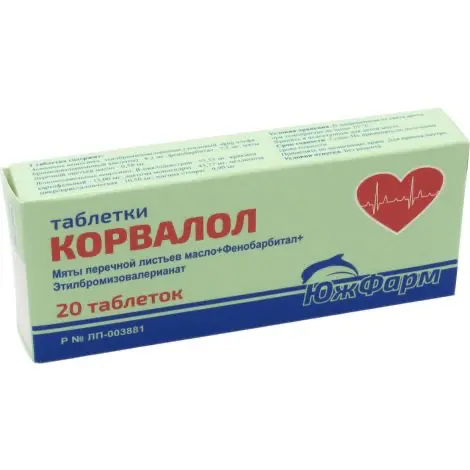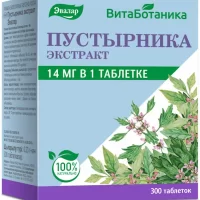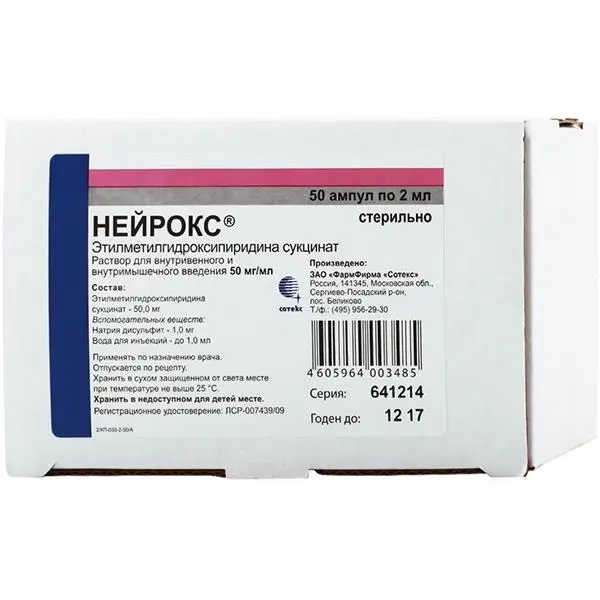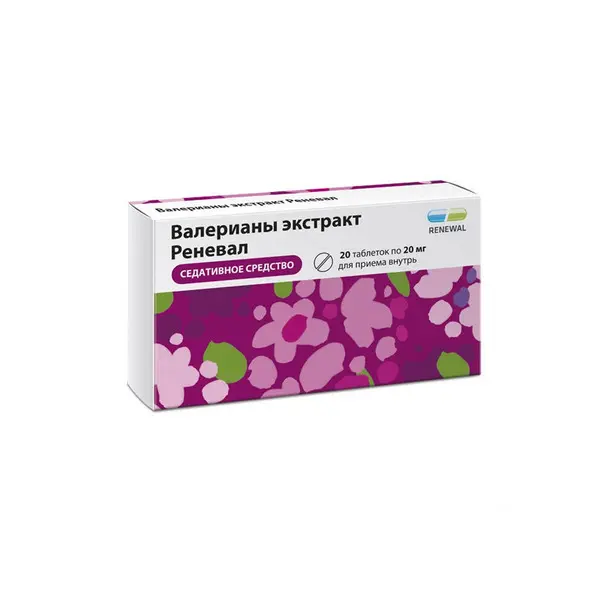Description
Mexifin Pharmacodynamics
The mechanism of action is due to the antioxidant and membrane-protective properties. It suppresses LPO, increases superoxidase activity, increases lipid-protein ratio, improves cell membrane structure and function. Modulates the activity of membrane-bound enzymes (Ca2+-independent FDE, adenylate cyclase, acetylcholinesterase), receptor complexes (benzodiazepine, GABA, acetylcholine), which helps their binding to ligands, maintaining the structural and functional organization of biomembranes, neurotransport and improve synaptic transmission. Increases the concentration of dopamine in the brain.
Enhances compensatory activation of aerobic glycolysis and reduces the degree of inhibition of oxidative processes in the Krebs cycle under hypoxia with an increase in ATP and creatine phosphate, activates the energy-synthesizing function of mitochondria.
Increases the body’s resistance to various damaging factors in pathological conditions (shock, hypoxia and ischemia, cerebral circulatory disorders, intoxication with ethanol and antipsychotic drugs).
Improves metabolism and blood supply to the brain, microcirculation and blood rheology, reduces platelet aggregation. It stabilizes blood cell membranes (erythrocytes and platelets), reducing the likelihood of hemolysis.
It has a hypolipidemic effect, reduces the content of total cholesterol and LDL.
It improves functional state of ischemic myocardium in myocardial infarction, cardiac contractile function, and reduces manifestations of LV systolic and diastolic dysfunction.
In conditions of critical decrease of coronary blood flow it promotes preservation of structural and functional organization of cardiomyocyte membranes, stimulates the activity of membrane enzymes – FDE, adenylate cyclase, acetylcholinesterase. It supports activation of aerobic glycolysis developing in acute ischemia and promotes under hypoxia restoration of mitochondrial redox processes, increases ATP and creatine phosphate synthesis. Ensures the integrity of morphological structures and physiological functions of ischemic myocardium.
Improves the clinical course of myocardial infarction, increases the effectiveness of therapy, accelerates the recovery of LV myocardial functional activity, reduces the frequency of arrhythmias and intracardiac conduction disturbances. Normalizes metabolic processes in the ischemic myocardium, reduces the zone of necrosis, restores and/or improves myocardial electrical activity and contractility, as well as increases coronary blood flow in the ischemic zone, increases the antianginal activity of nitro preparations, improves blood rheological properties, reduces the consequences of reperfusion syndrome in acute coronary failure.
It reduces enzymatic toxemia and endogenous intoxication in acute pancreatitis.
Indications
– Anxiety in neurotic and neurosis-like conditions;
– vegetovascular dystonia;
– discirculatory encephalopathy;
– Mild cognitive disorders of atherosclerotic genesis;
– Acute disorders of cerebral circulation (as part of the combined therapy);
– withdrawal syndrome in alcoholism with a predominance of neurosis-like and autonomic-vascular disorders;
– acute intoxication with antipsychotic drugs;
– acute purulent inflammatory processes in the abdominal cavity (including acute necrotizing pancreatitis, peritonitis (as part of complex therapy))
– Acute myocardial infarction from the first day (parenterally);
– CHD;
– Integrated treatment of ischemic stroke (orally) – as part of the complex therapy.
Contraindications
– hypersensitivity;
– acute hepatic and/or renal failure;
– pregnancy;
– lactation period;
– childhood.
Caution: in case of history of allergic diseases (for parenteral administration).
Dosage and administration
- Orally, 0.25-0.5 g / day in 2-3 doses, the maximum daily dose – 0.6-0.8 g. Treatment duration – 2-6 weeks, to stop alcohol withdrawal – 5-7 days. Treatment is discontinued gradually, reducing the dose over 2-3 days.
- In/m, v/v (by stream, for 5-7 minutes, or by drip, at a rate of 60 drops/min). When infusion method of administration is diluted in 200 ml of 0.9% sodium chloride solution.
- Initial dose is 0.05-0.1 g 1-3 times per day with gradual increase until therapeutic effect is achieved. Maximum daily dose is 0.8 g.
- In acute impairment of cerebral circulation, IV drops, 0.2-0.3 g 1 time/day during the first 2-4 days, then v/m, 0.1 g 3 times/day.
- In dyscirculatory encephalopathy (decompensation phase) – v/v or dropwise, 0.1 g 2-3 times/day within 14 days and then v/m, 0.1 g within 14 days. During course prophylaxis of dyscirculatory encephalopathy – v/m, 0.1 g 2 times/day for 10-14 days.
- STD, neurotic and neurosis-like conditions – v/m, 0.05-0.4 g / day for 14 days.
- In withdrawal syndrome – in/m, 100-200 mg 2-3 times/day or IV drops, 1-2 times/day for 5-7 days.
- In acute intoxication with antipsychotic drugs – intravenously 0.05-0.3 g/day for 7-14 days.
- In mild cognitive disorders – v/m 0.1-0.3 g/day for 14-30 days.
- In purulent-inflammatory processes in abdominal cavity (acute necrotizing pancreatitis, peritonitis) – during the first day in preoperative and postoperative period. Dose depends on the form and severity of the disease, process prevalence, clinical course.
- The drug is withdrawn gradually after steady clinical and laboratory improvement.
- In acute edematous (interstitial) pancreatitis of mild degree of severity – 0.1-0.2 g 3 times/day by IV drop and IV/m;
of moderate severity – 0.2 g 3 times/day;
in a severe course – by IV dropwise, 0.8 g during the first day (divided into two injections), further – 0.3 g 2 times/day with gradual reduction of daily dose;
Extremely severe course – by IV drops, 0.8 g/day until stable resolution of symptoms of pancreatogenic shock;
after stabilization – 0.3-0.4 g 2 times per day with a gradual reduction of the daily dose. - In myocardial infarction: intravenously (during the first 5 days) and intravenously (during the next 9 days) 3 times/day (every 8 hours). The daily dose is 6-9 mg/kg/day, the single dose is 2-3 mg/kg. The maximum daily dose should not exceed 800 mg, a single dose 250 mg. The drug should be infused intravenously for 30-90 min in 100-150 ml of 0.9% sodium chloride solution or 5% dextrose solution, or by infusion for at least 5 min.
- In CHD: orally, 100 mg 3 times per day. Course duration is at least 2 months; repeated courses are possible if necessary.

